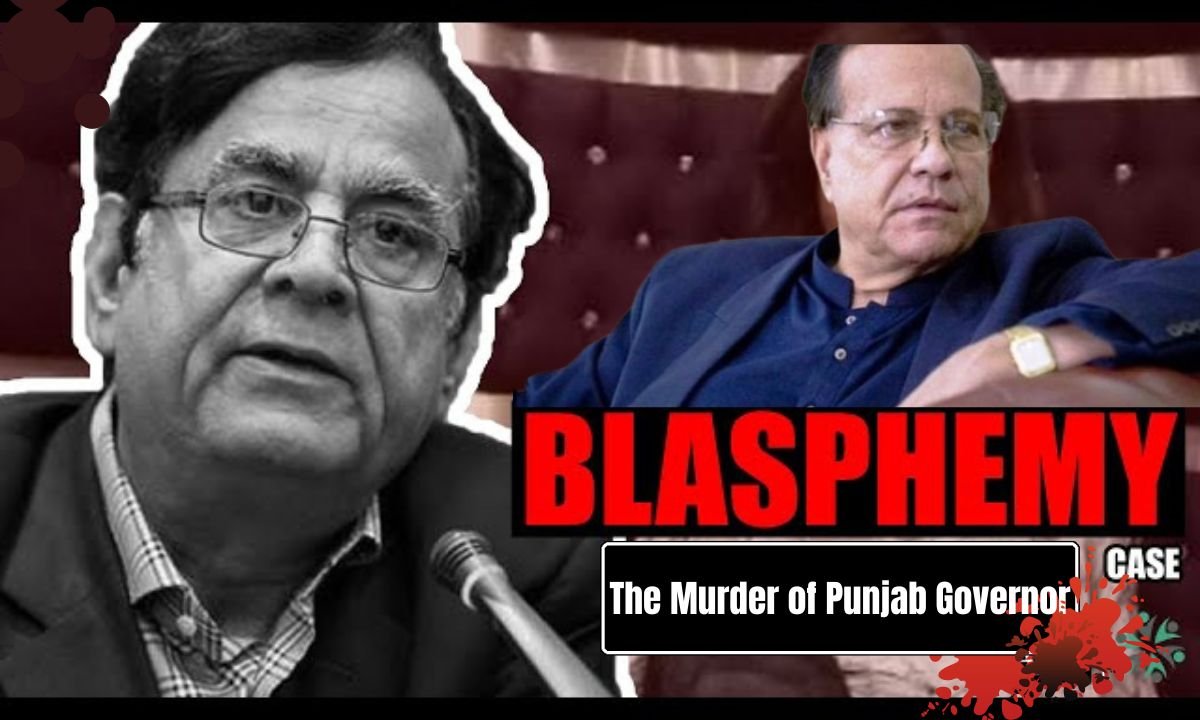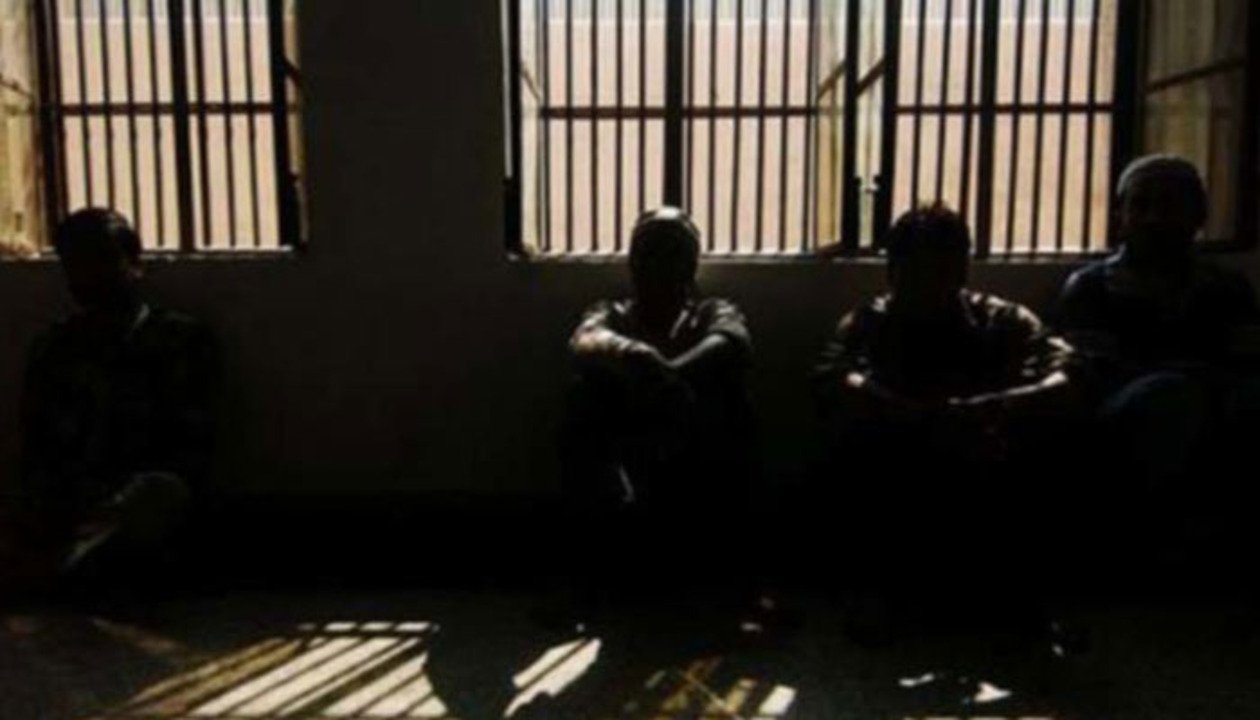Salman Taseer Murder Case: Blasphemy case & killing of Punjab Governor
The murder of Punjab Governor Salman Taseer at the hands of his own bodyguard, Mumtaz Qadri, is the most controversial case in Pakistan’s history. The assassination happened in 2011, which showed deadly societal divisions in Pakistan, especially about blasphemy laws and religious fanaticism.
This high-profile murder case showed crystal clear ideological wars between liberal beliefs and extremism in Pakistan. It was a turning point in the country’s ongoing fight against extremism in religion. This awful tragedy has impacted the political and social fabric of the Pakistani nation since its independence.

Who was Salman Taseer?
Salman Taseer was from a mixed-race household as his mother was English and his father was Kashmiri. He was born on May 31, 1944, in Shimla, British India.
His father Muhammad Din Taseer was a professor at Mohammedan Anglo-Oriental College in Amritsar and received his doctorate in the UK. However, a British woman Christobel George was his mother who converted to Islam and later adopted the Muslim name Bilqis after getting married.
Former prime minister Nawaz Shareef was his classmate at the Christian missionary-run St. Anthony’s School in Lahore. After that, he graduated from London with a degree in chartered accounting.

Marriage and Family
Taseer had two extramarital affairs in addition to his marriages. He has two daughters, Sara and Sanam with one son, Shaan from his first wife, Yasmeen Sehgal.
Aamna Taseer was his second wife and they shared a daughter named Sherhrbano and two sons, Shahbaz and Shehryar.

Political Career
Salman Taseer joined the Pakistan Peoples Party (PPP) in the late 1960s to begin his political career while still being a student. He was also well-known for being a dependable assistant to Benazir Bhutto, the daughter of Zulfikar Ali Bhutto and former prime minister.
Salman was elected from Lahore and became a member of the Punjab Assembly in the 1988 general elections. The PPP-led coalition government nominated Salman Taseer, the Governor of Punjab on May 15, 2008. However, nobody knew his fate as the “Governor of Punjab” would not end well and bring his tragic murder.

Historical background behind murder case of Salman Taseer
Prominent PPP member Salman was famous for his liberal viewpoints, and vocal opposition to the blasphemy laws of Pakistan. These laws have long been divisive in Pakistan and hence around the world.
Liberals view them as harsh punishments for anyone found to have insulted Islam or scared Islamic figures, especially Hazrat Muhammad (P.B.U.H).
However, a murder case happened after Salman Taseer called for the pardon of Asia Bibi, a Christian woman who was convicted of blasphemy. He openly supported her, calling the laws against blasphemy “black laws.”
This heated discussion came on November 26, 2024, when Salman was giving an interview to female host Mehar Bukhari on Samaa TV. He talked about how bad he felt about the country’s blasphemy law. He also emphasized his urge for the release of Asia Bibi from her death sentence.

What was the blasphemy case of Asia Bibi?
A Pakistani court found Asia Bibi guilty of blasphemy in 2010 and gave a verdict of death sentence for her. This verdict came in response to the June 2009 incident when Asia was plucking falsa berries in a Sheikhupura field with other female farmworkers.
Meanwhile, she was asked to get water from a nearby well. Hence, she did as instructed but she took a break to sip from an ancient metal cup she had found lying next to the well.
Her neighbor, Musarat who had been involved in a long-running dispute with Asia’s family over some property damage, saw her and allegedly instigated the situation.
Musarat backlashed her saying it was against Muslim law to drink water (for Christians) from the same utensil that Muslims use. Other workers also had the same viewpoints as they considered Asia less clean than theirs due to her Christian faith following some Muslim caste’s beliefs.
Hence, they all backfired on Asia and allegedly forced her to convert to Islam as she drank water from their utensil. They found it mandatory for her to be converted to Islam.
Asia claimed she passed the following remarks in response to their derogatory comments about Christianity and that demanded she must convert to Islam:
She believed in her religion and in Jesus Christ, who died on the cross for the sins of mankind. What good deed did your prophet Mohammaed ever do for humanity? And why should she be the one who converts rather than you (mob).
Asia Bibi
Murder of Salman Taseer
Salman was returning to his car after visiting a friend for lunch on January 4, 2011. When one of his bodyguards, Malik Mumtaz Qadri, shot him 27 times with his AK-47 assault rifle at Kohsar Market, close to his home in Sector F6, Islamabad.
Kohsar Market is a well-liked destination for foreign visitors and the city’s elite for shopping and dining. Taseer did not know Mumtaz Qadri would see his support of women’s rights and religious minority’s liberty as “demeaning to Islam.”
Salman Taseer tweeted an Urdu couplet by Shakeel Badayuni eight hours before his murder. That couplet’s translation in English is:
My resolve is so strong that I do not fear the flames from outside. I fear only the radiance of the flowers that might burn down my garden.
Couplet by Shakeel Badayuni, tweeted by Salman Taseer before his death

Funeral of Salman Taseer
The roots of division between extremism and liberalism in Pakistan were so intense that only a few hundred people attended the funeral prayer of Salman on January 5, 2011.
Even though some Sunni clerics and religious teachers said it was wrong for Salman to be in mourning. Then-Prime Minister Yousaf Raza Gillani and some others from the PPP party with some journalists appeared at the funeral prayer.
The head cleric of the Badshahi Mosque had agreed to lead the funeral prayers, but at the last minute, he changed his mind and said he had to leave town. So, nobody was ready to lead the funeral prayer of the dead Salman due to strong critical viewpoints against him.
Hence, Allama Afzal Chishti of the Ulema wing of the PPP finally took over and led the funeral prayer. Salman is buried in Lahore at an Army Cantonment.

Aftermath and Judicial Trial of Mumtaz Qadri
The Assassin of Salman, Malik Mumtaz Hussain Qadri was from Punjab. He was a member of the Elite Police security team for Punjab Governor. Following the gunfire, Mumtaz Qadri reportedly dropped his gun. He appealed to authorities to be taken into custody at the scene of the incident.
Since Salman Taseer supported a blasphemer, more than 500 clerics called for a widespread boycott of his funeral prayer and expressed massive support for Mumtaz Qadri.
Supporters of Mumtaz obstructed police attempts to transport him to Rawalpindi’s Anti-Terrorism Court during his trial. Even some people showered rose petals on him.

Click here to read the updates on the Killing of Gandhi Family: Mahatma Gandhi, Indira, and Rajiv
Despite severe criticism from the masses, the Pakistani Anti-Terrorism Court sentenced Mumtaz Qadri to death on October 1, 2011, for killing Salman. Mumtaz Qadri was put to a death sentence on February 29, 2016. Thousands of cult religious followers performed his absentia funeral prayer.
As per Asia’s case that laid the basis of the Salman Taseer Murder, the Supreme Court of Pakistan acquitted her in October 2018 due to a lack of evidence against her.
However, she could not leave Pakistan until the decision was reviewed. Armed guards continued to watch her but she left Pakistan on May 8, 2019, after the court’s decision. She reached Canada and resides there now.

Conclusion
The murder case of Salman Taseer and the subsequent celebration of his killer serve as an important reminder of the widespread religious extremism in Pakistan. His death sent a terrible message to those who supported more religious tolerance and blasphemy law reform.
This case showed how dangerous free expression and secular government are in Pakistan. It gives insight into the deep extent to which radical ideology established itself in Pakistani society. And the difficulties that awaited anyone attempting to move reasonable and progressive ideas.
Share this content:




Post Comment